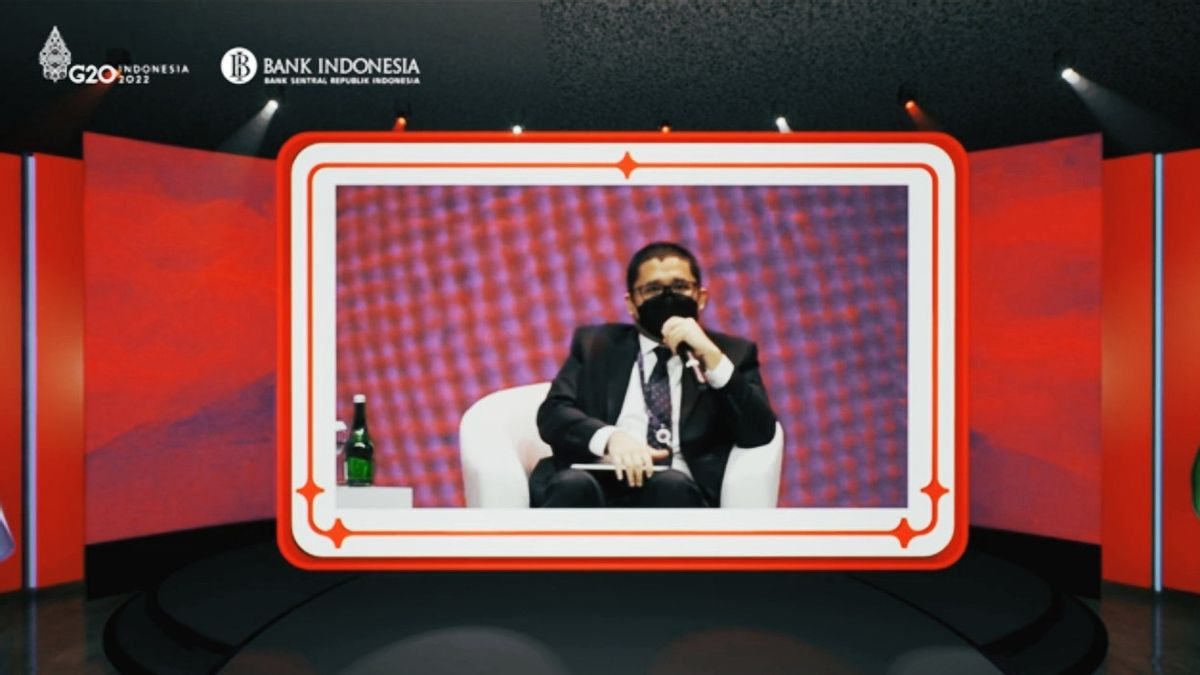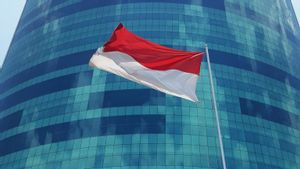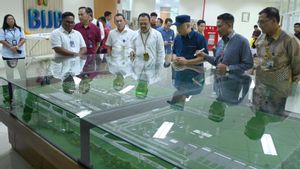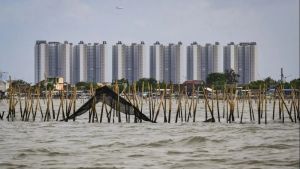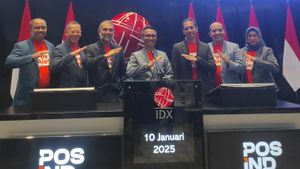JAKARTA – Indonesia has consistently brought environmental issues and climate change to the agenda of the meeting at this year's G20 forum.
Head of the Fiscal Policy Agency (BKF) of the Ministry of Finance Febrio Kacaribu said that one of the concrete steps shown by Indonesia was to target the cessation of energy production from coal through Steam Power Plants (PLTU).
"Currently we are preparing what is called the energy transition mechanism, which will link the construction of new and renewable energy power plants with facing down coal," he said in a virtual seminar entitled Strategic Issues in G20, Thursday, February 17. .
According to Febrio, continuous efforts are needed between the plan to establish environmentally friendly energy plants and efforts to reduce the role of PLTU.
"We can't just build NRE power plants, but we also have to start lowering the PLTU," he said.
In fact, Febrio said that the government already has a scenario to close all PLTUs in the next three decades. He said, this step must be carried out as a consequence of Indonesia's attitude which continues to strive for the creation of a green environment.
"In terms of the current scenario, according to the age of the existing PLTU, 2056 will be the year when we will no longer have coal-fired power plants. So that is our scenario by also taking into account that no more steam power plants will be built, and this is already in the government pipeline," he explained.
If the scheme designed runs successfully, then RI's ideals towards net zero emission will be more real.
“We are actually going towards net zero emission which is our initiative. We want it to be faster and don't have to wait until 2056," he stressed.
As a measure to mitigate energy needs, Febrio also admitted that the government has prepared a cushioning strategy for PLTU operators, including certain forms of compensation. Not only that, he also revealed that state administrators would continue to pay attention to aspects of energy supply to the community in the discourse on the energy transition being carried out.
"We build NRE electricity by ensuring that electricity supply and demand is maintained. Do not let us force PLN to buy electricity from EBT but it turns out that the electricity demand has not increased, this can make PLN lose. If PLN loses, the APBN will also lose, I don't want this," he said.
"Then if facing down coal is there a fee or not? Yes, obviously there are costs, because they (PLTU) are already operating and then we ask to reduce the production period, of course there is compensation that must be prepared. This is why I say there is connectivity between facing down coal and the construction of an EBT power plant. Later, there will be funding that will come in and it will not only be borne by Indonesia but also by the global community," closed Febrio.
For information, fossil energy accounts for about 85 percent of all electricity generated by Indonesia. Of this amount, coal (PLTU) is the main supporter with a percentage of 47 percent.
The English, Chinese, Japanese, Arabic, and French versions are automatically generated by the AI. So there may still be inaccuracies in translating, please always see Indonesian as our main language. (system supported by DigitalSiber.id)
